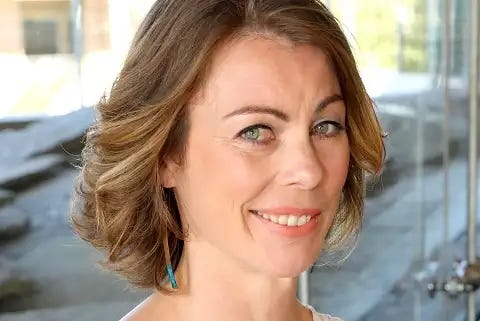Egalitarians: There ought to be more women in science.
Women in science: I’m a climate scientist. Here’s how I’m handling climate grief.
This is the direct and full title from an article in the political magazine Nature. Written by lady scientist Kimberley R. Miner. Who says, “Researchers must find personal ways to cope with impending losses”. What losses?
Those who were anxious to have women in science were warned that boosting the numbers of women in science, by putting women in science just because they were women, would be bound to turn science into feelings.
Not so, said egalitarians. That was a stereotyped and sexist view. Adding women in science would make it so that there were more women in science, which was the goal of wanting to have more women in science.
Last September, before the rains came, my field team learnt that it was probably too late for half the blue oaks affected by California’s drought in the region in which we were working. Because of years of ongoing drought, many of the trees would not recover from the long-term water loss and would die. The next morning, I sat outside our science team meeting and cried.
Did you indeed, Kimmy. And because you cried—and sat down for it, the episode draining the strength from your limbs—should we then turn science into a tear-drying enterprise?
Yes, say Kimmy.
A friend sat with me and explained that she had just recovered from an episode of extreme climate grief brought about by studying rapidly changing terrestrial ecosystems. She had started taking weekends off (many of us work seven days a week) and encouraged me to do so, as well. After we talked, I walked around the parking area for a while, listening to the birds and watching the midday light filter through the diverse trees in downtown Santa Barbara. I breathed the ocean air and grounded myself in the present, where the air was cool and the birds were singing.
Well isn’t that nice. I used to do the same thing on the F train when I lived in Manhattan. Though instead of birds it was people playing loud rap “music” on their phones. Taking a whiff of the air was a terrific way of grounding yourself in Reality. That’s what science is all about.
But, seriously, Kimmy, how are you feeling? Tell us, do.
I am in my mid-thirties, working at NASA as a scientist, and I already have five scientist friends with severe, emergent health challenges. They are all affected by overwork, exhaustion and extreme stress. The only other thing they all have in common is that they study climate change.
Studying “climate change” is bad for your health? Being awarded many lucrative grants by an interested Regime causes “emergent health challenges”? Does the CDC know about this new and curious disease vector?
Some climate scientists have left the field, some have died and some have retired, but even more are just starting their careers. Early-career climate scientists across a range of fields are faced with comprehensive, esoteric challenges as ecosystems begin to cross tipping points…
Even for the most experienced and well-trained field scientists, changing dynamics can introduce sudden risks to health and safety.
Esoteric challenges! You see, effeminate scientists might be strolling along, contemplating how they will shoulder the world’s burdens on their narrow shoulders, when, suddenly!, they “might find themselves confronted with a new atmospheric or hydrologic circulation pattern, an unseasonal storm or freeze, or literally shaky ground.”
Literally.
What did Kimmy do about her immense grief? She talked to a man. Honestly, who better?
She asked this man “about how we can address climate grief…The best treatment for climate grief, he says, is knowing you’ve made a contribution to reducing emissions or building resilience.”
As for Kimmy, she turned inward and there met her feelings. She is now “enjoying the world around” her, and telling herself that “Although small actions might not solve the climate crisis, they remind us that we are intrinsic parts of the world and its ecosystems.”
Who knew? Not you, dear reader. That is why we have science.
Subscribe or donate to support this site and its wholly independent host using credit card click here. Or use the paid subscription at Substack. Cash App: $WilliamMBriggs. For Zelle, use my email: matt@wmbriggs.com, and please include yours so I know who to thank.





She and the oaks were rescued - "In California, rainstorms started in December and lasted until May. Reservoirs were refilled, and many oaks were saved. The hills glowed with yellow and orange wildflowers, and leaves exploded from branches in rapid growth, a benefit of the winter of moisture. For just this one year, the blossoming hills gave me a breath of relief amid the ongoing struggle, and I rededicated myself to continuing to fight for everything we can still save," - without any help from The Science.
I guess her tears invoked the rain.
Saw this breakdown recently on twitter:
1. That won't happen, you're wrong and just a conspiracy theorist
2. It's happening but it's not a big deal
3. It's happening and it's actually a good thing
4. The people complaining about it happening are the real problem.
So William, I declare you the problem here.